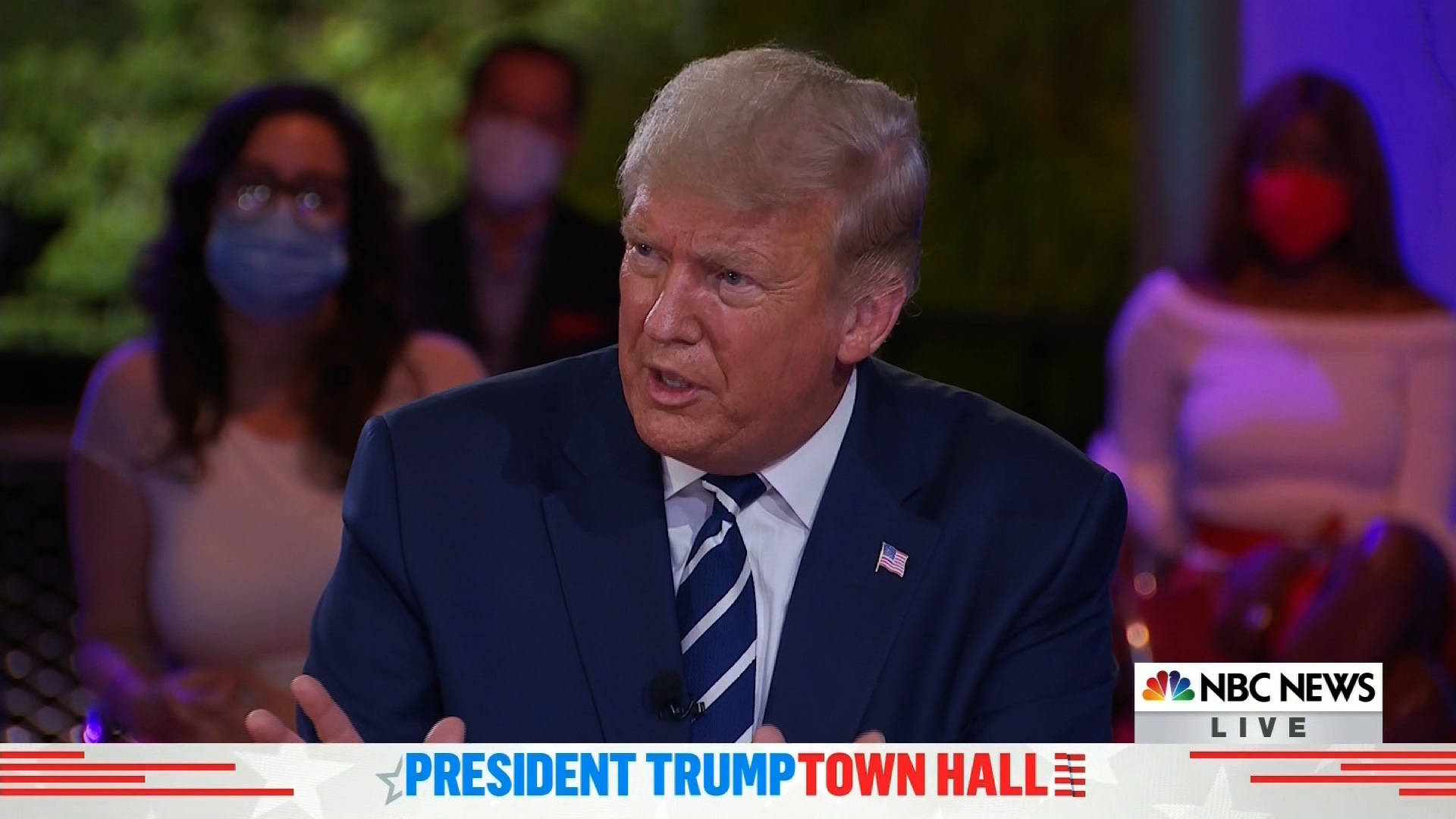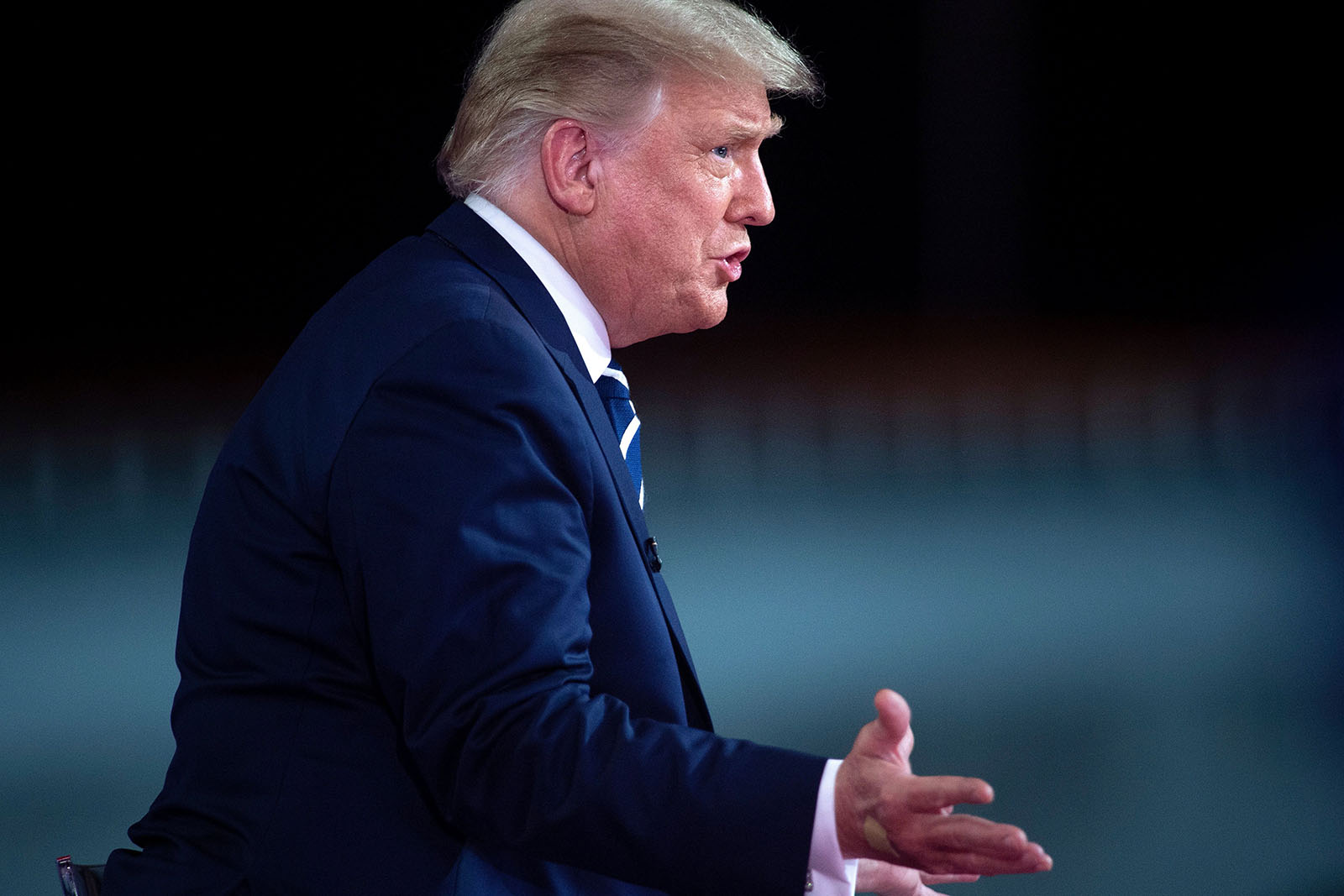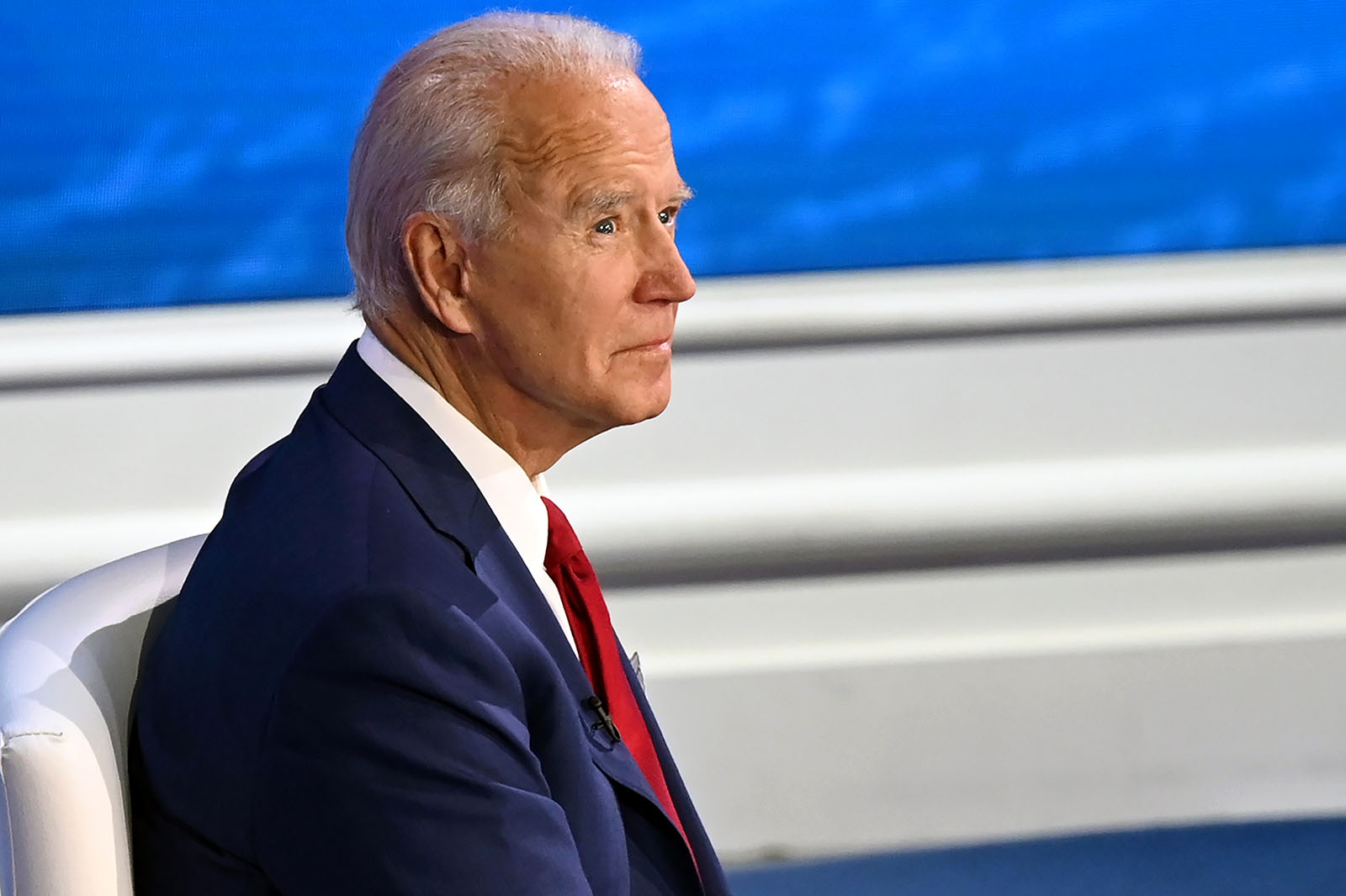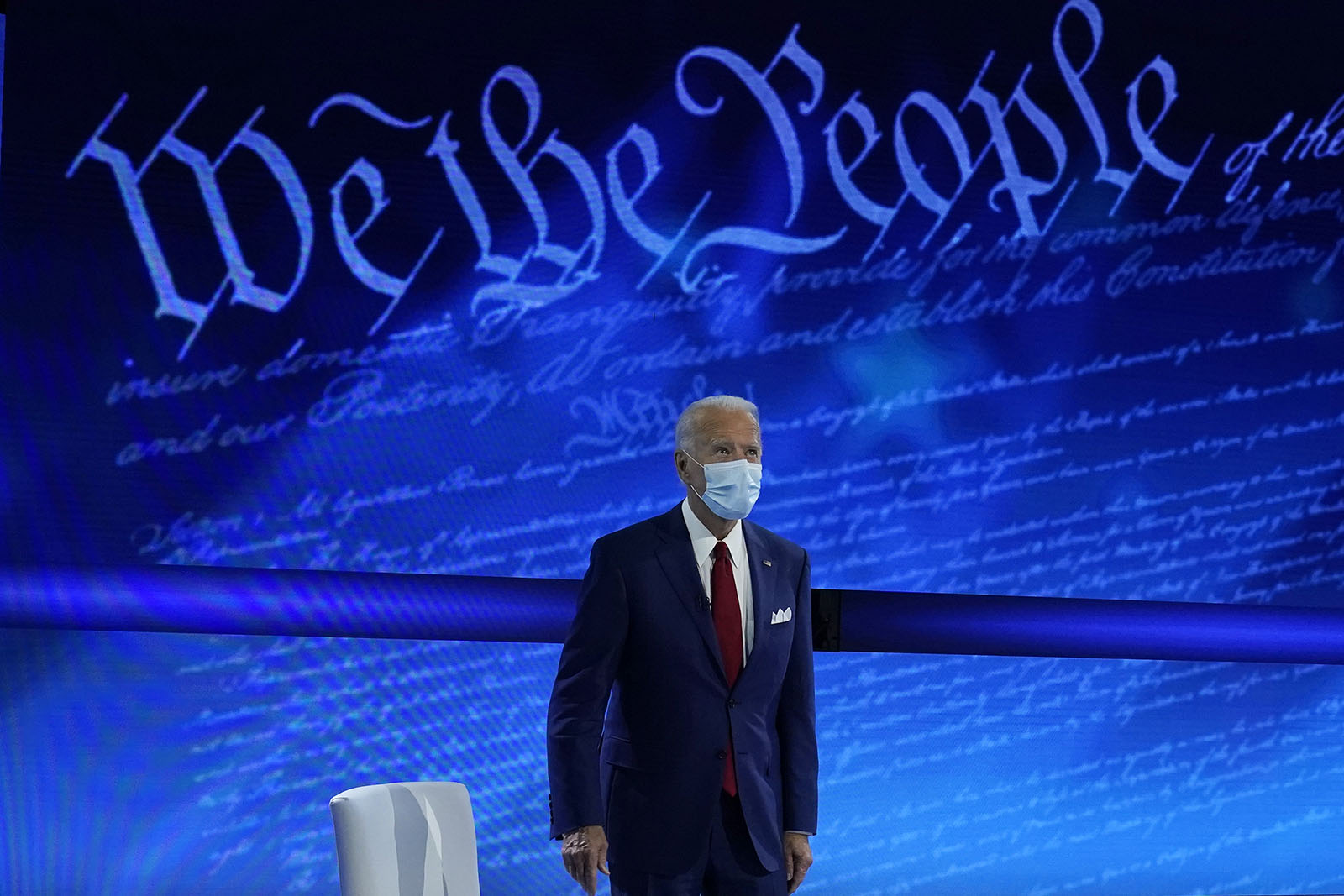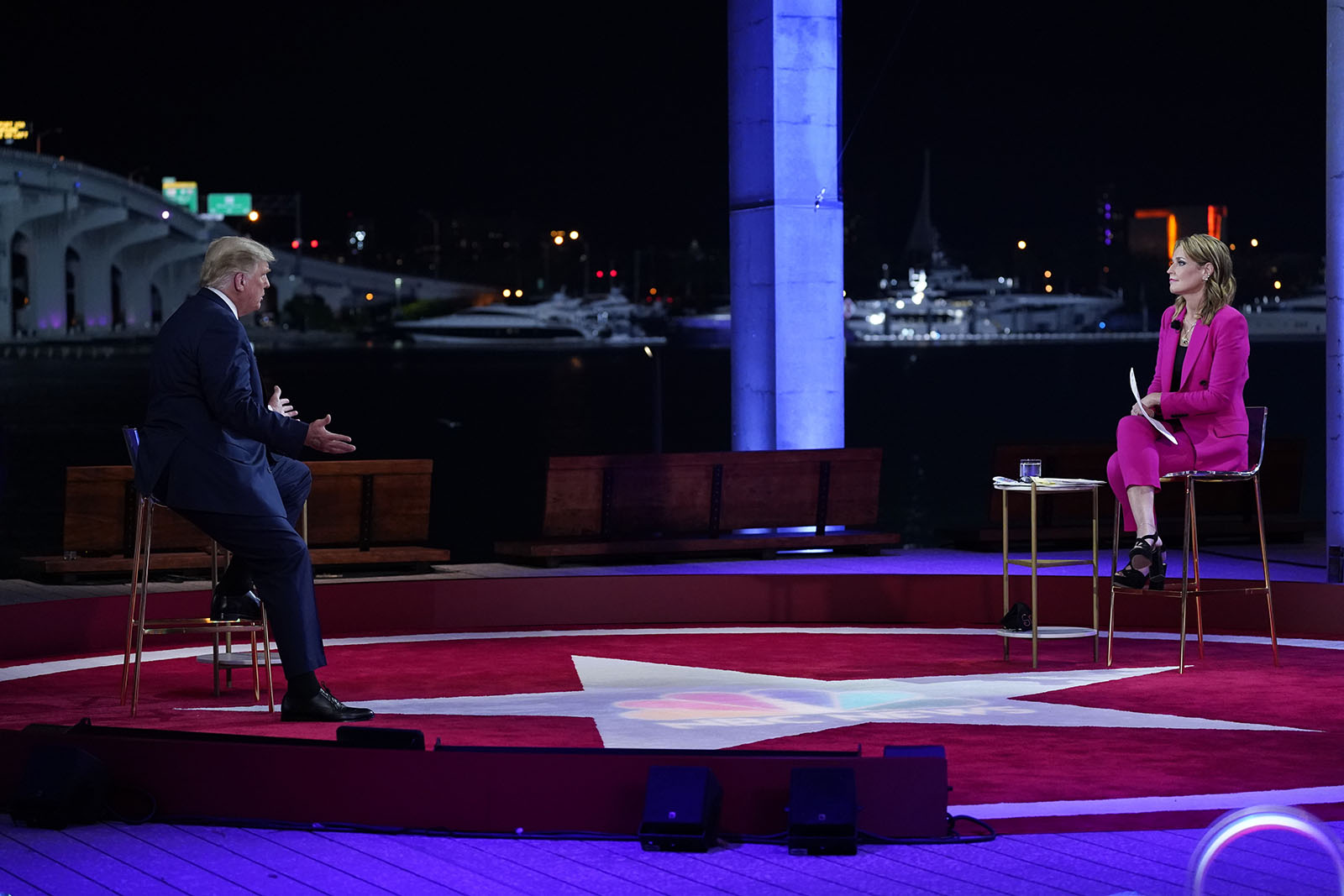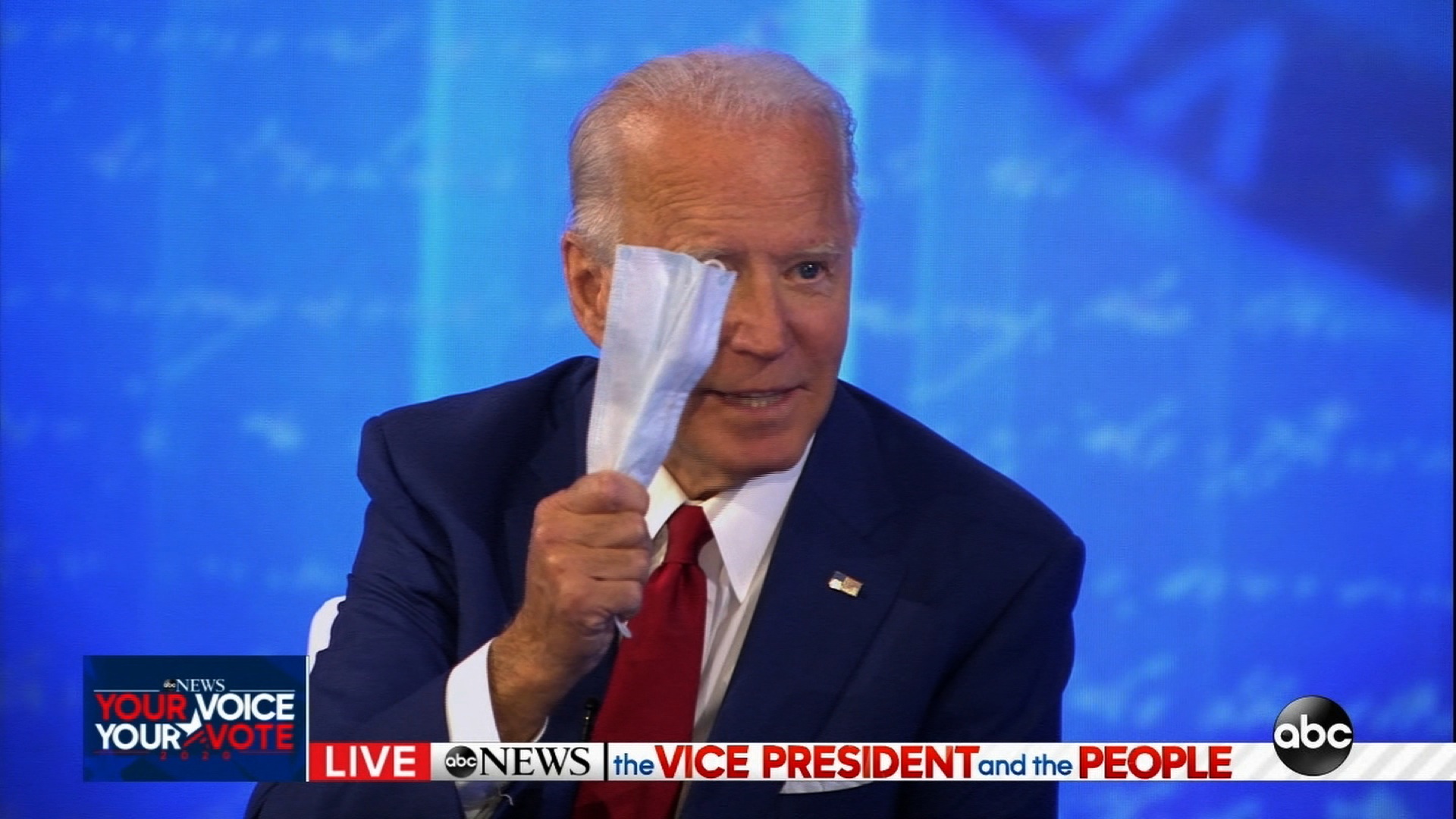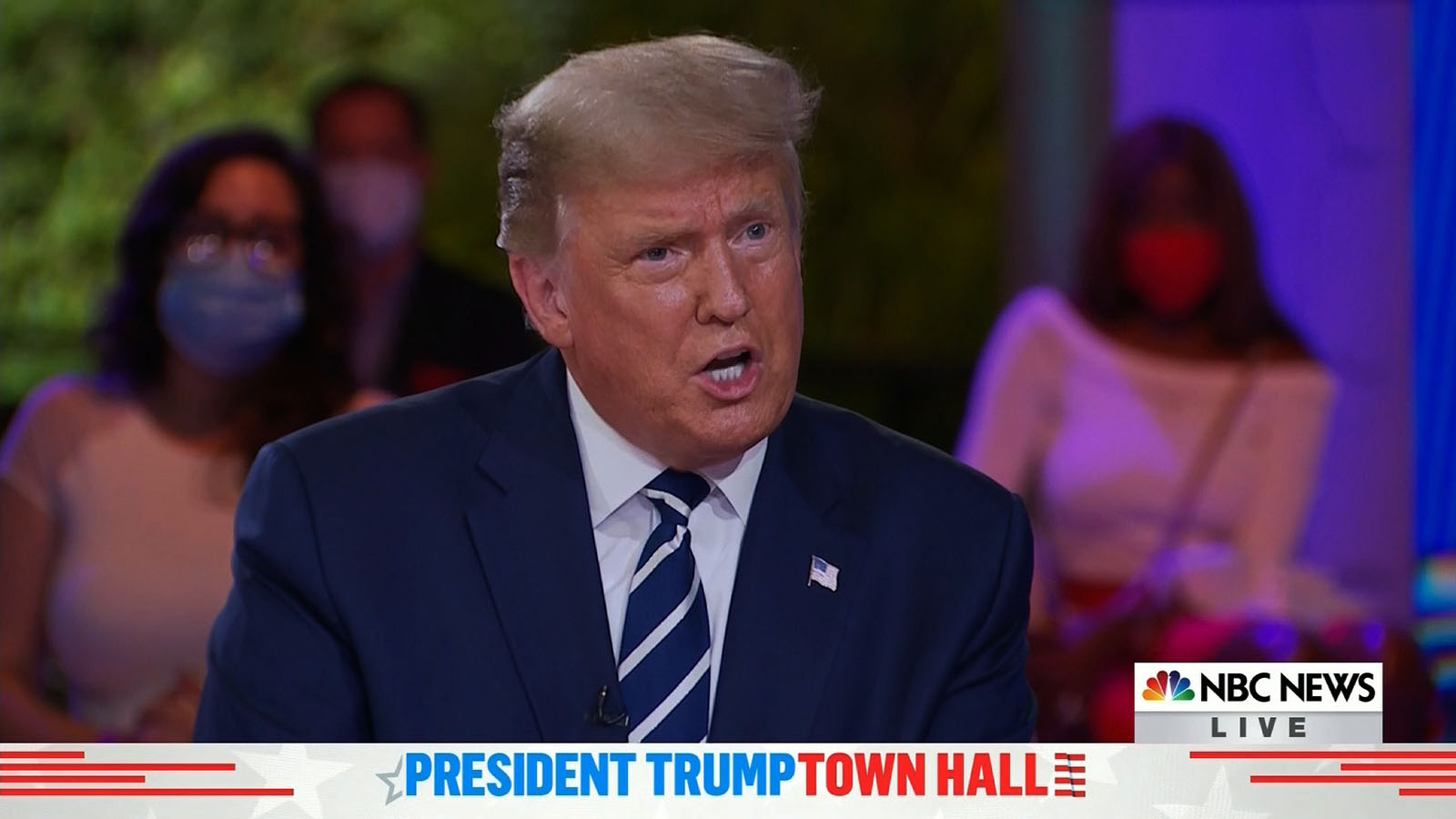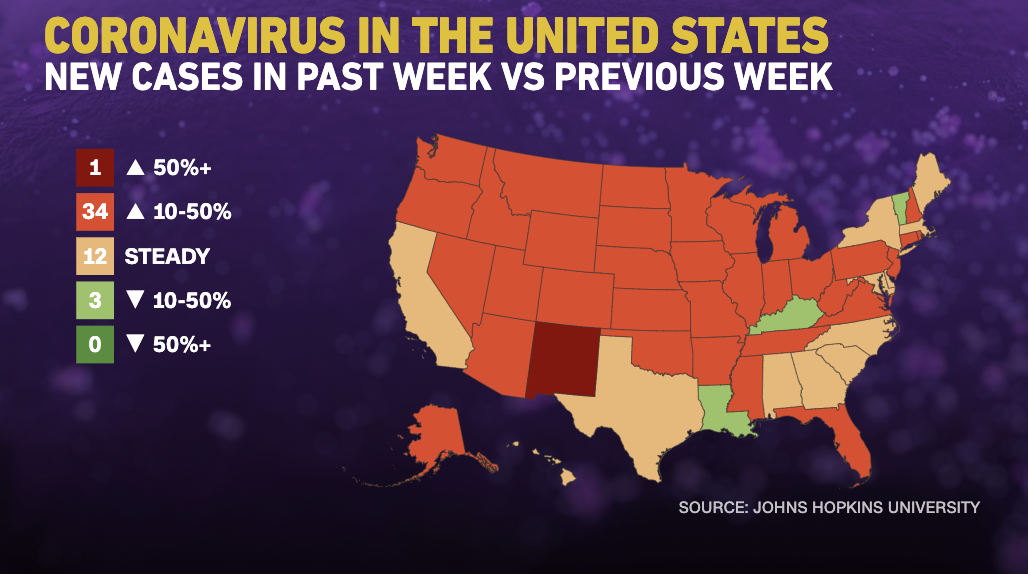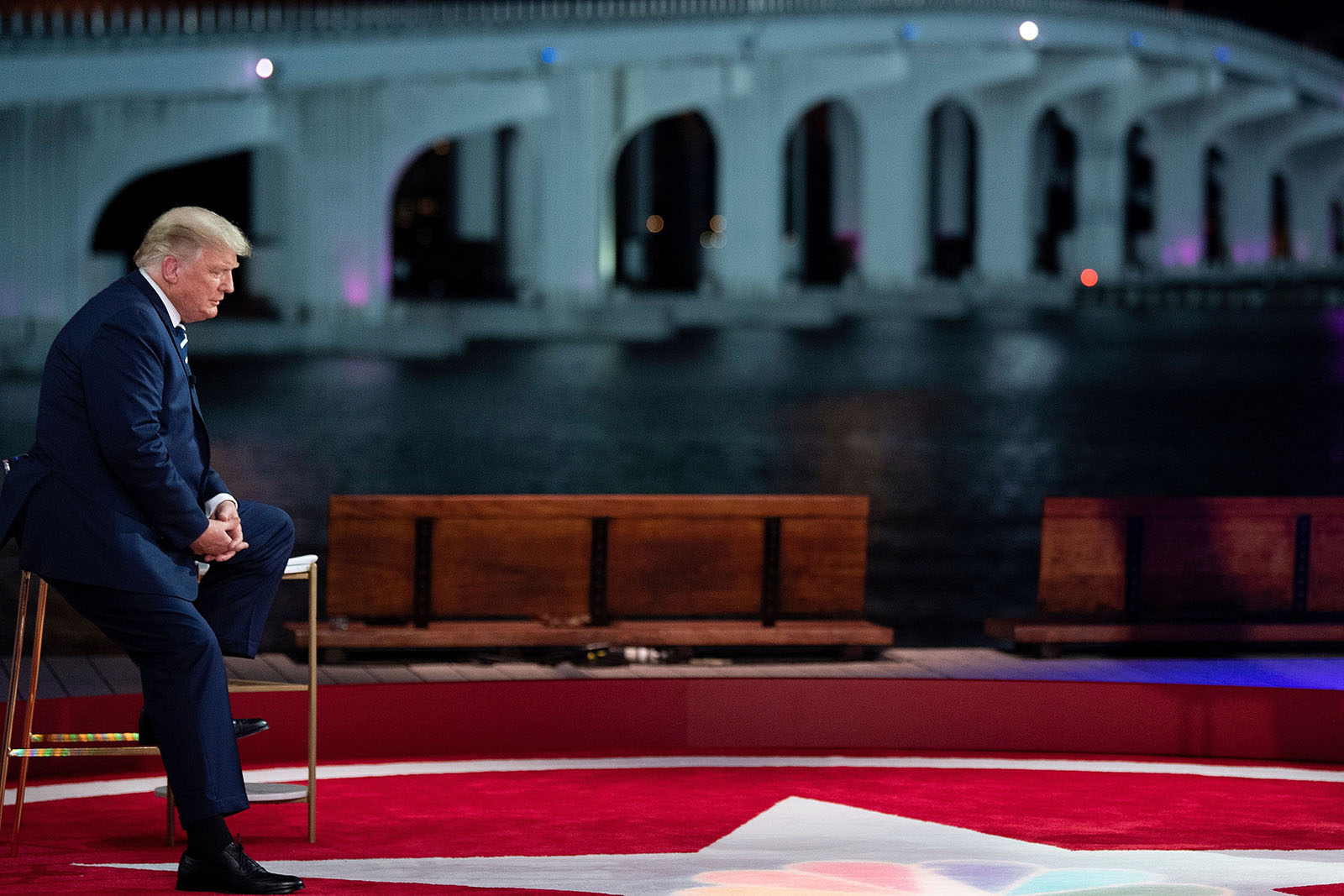
In a heated exchange with NBC News’ Savannah Guthrie during Thursday night’s town hall, President Trump once again refused to denounce the QAnon conspiracy theory.
Guthrie asked Trump if he could state that the conspiracy — centered around the belief Democrats run a satanic pedophile ring and that Trump is an anti-pedophilic savior — was not true.
Trump responded, “I know nothing about QAnon."
“I just told you,” Guthrie said.
Trump fired back, saying, “What you tell me doesn’t necessarily make it fact.”
The President claimed that all he knows about the conspiracy theory movement, which has had a prevalent presence at his campaign rallies, is that “they are very much against pedophelia” and that he agrees with that sentiment.
The President also tried to separate himself from his recent retweet of a conspiracy theory from an account linked to QAnon, which baselessly claimed that former Vice President Joe Biden orchestrated to have Seal Team Six killed to cover up the fake death of Osama bin Laden.
“I know nothing about it,” Trump claimed. “That was a retweet — that was an opinion of somebody. And that was a retweet. I’ll put it out there. People can decide for themselves.”
But Guthrie responded, “I don’t get that. You’re the President. You’re not like someone’s crazy uncle who can retweet whatever.”
Trump has frequently used his social media platform to promote various QAnon-associated accounts and their theories. In August, he went so far as to embrace their support.
"I don't know much about the movement other than I understand they like me very much, which I appreciate," Trump said in August.
He has also defended his decision to endorse a Republican congressional candidate in Georgia with history of promoting QAnon theories and making racist and anti-Semitic remarks.
Watch the exchange:
